How many times have you heard advice like: "Don't dwell in the past. Don't look too much to the future. Just enjoy  the ride where you are?"
the ride where you are?"
These are words that wise ones like to offer us, especially if we find ourselves in a life funk.
We're told that the present moment is all we have! Live today to the full! Carpe Diem. For even Jesus advised to "Do not be anxious about tomorrow, for tomorrow will be anxious for itself" (Matthew 6:34).
Once a mentor told me if I couldn't mediate with my eyes open wherever I was then, I'd completely lost touch with a sense of self.
So with all of this true, looking forward to something in the future is just heretical talk. Setting your eyes on something that will bring you pleasure in the future is called not really living. Anticipation is a bad word.
 Yet, today, in this blog post, I want to object.
Yet, today, in this blog post, I want to object.
As much as I agree with "wherever you are be fully there" talk . . .
For to have my calendar full of opportunities to experience joy with people I love, there's really nothing better than that! It's abundant living. It's life on the edge of blooming. What beauty!
And as Albert Camus once said: “...We need the sweet pain of anticipation to tell us we are really alive.”
I know I'm fully alive when I'm anticipating something, I'm claiming my place in the land of what it means to be a human being. Anticipation is giving feet to the prayer: "The best is yet to be."
Or in other words, anticipation is a reason to get out of bed and do not only things with daily deadlines but to prepare for what might come later. People who are depressed can't do this. But those with hope for the future can!
Recently, I found myself re-reading a part of the Henri Nowuen classic The Wounded Healer and found myself captured by this quote. I wrote it down and came back to it often for several weeks:
I love these words because it's another way to speak of anticipation. If we want to be a hope-filled people, then none of us can seek to preserve, defend and protect what we have. Nope! Our calling is to move toward the unknown.
It's a scary place to be, though. Living life with anticipation (especially if you've known the deep pains of disappointment) is placing your heart on the table. It's saying again, "This is important to me." Or "You are important to me."
Anticipation's excitement does not look back! And while the knowns of the past or present feel safer, anticipation helps you in the words of Mary Oliver to "leave some room in your heart for the unimaginable."
If you want to know where my heart is these days, I have one word for you. It's anticipation. It's the sweetness of believing good is on its way though I have no idea what it will look like or when it will come.
The anticipation I have is so sweet I can taste it though I'm still here in the moment called today.
What are you looking forward to? After all, as Christians, we are an Easter people. Resurrection is always on its way even as we are in Lent.
Choose Life: Deuteronomy 30:15-31:6
A sermon preached to staff and children at Feed the Children Kenya, May 6, 2015
 When we wake up in the morning, no matter who we are or where we come from, we all have choices. For example: we can choose to eat the breakfast put before us or not eat anything at all.
When we wake up in the morning, no matter who we are or where we come from, we all have choices. For example: we can choose to eat the breakfast put before us or not eat anything at all.
Or, we can choose to put on long trousers if it is cold or a jacket if it is raining.
Or, we can choose say, “Thank you God for this day” with a smile on our face or we can say with a growl, “I want to go back to bed!”
Though every day life gives us a different set of experiences to deal with (that often times we can’t control)—we always have a choice in HOW we deal with them.
In our reading from the book of Deuteronomy, we hear this word about choices. Moses, the great leader of the children of Israel as they are making their great journey out of Egypt into freedom in the Promise Land, says to them this:
See, I have put in front of you today life and what is good, and death and what is bad.
Which is another way of saying, listen up everyone—in this life God has given you, you have choices.
You can choose what is good and enjoy all that life has to give you.
Or you can choose what is bad and not enjoy all life has to give you.
But the interesting part of this story is the context. There was a reason that Moses was giving this speech. And the reason was that Moses knows that his time as leader of the nation of Israel is coming to a close.
The problem was Moses didn't want to leave! He did not intend to step aside as their leader at this point. He believed he would make the entire journey with them into the new land. For many years, this was the goal that Moses and the people were working toward together. Moses had invested so much of his life and his family’s life in the work of helping the people follow after God’s best plans for them.
BUT then a day came when God told Moses that he wouldn't be the leader who saw the journey through. There would be another leader and his name would be Joshua.
If you could put yourself in Moses’ shoes for a moment, think about how you might feel if you got this news. What would you say to God in response?
If I were Moses, I think I might be angry. I might even say to God, “This is so unfair! After all that I have done for this group of people and ALL the dreams we dreamed up together, how come I have to step aside now?”
And all of these thoughts would be valid feelings.
Very few of us set out to commit our whole heart to a task and stop in the middle of it.
But Moses had to learn another way.
He had to be reminded who was in charge most of all.
It was not him. It was God.
And God asked Moses to lay aside his own desires, his own wishes and to choose the plans the he wanted to offer to the nation of Israel.
And in his parting words to them before Joshua takes over, he says just this.
Choose life! Choose God! Know that God is never going to leave you, though my time, as your leader will soon come to a close.
I want to tell you a story to maybe help you understand a bit more what I mean here. It’s a story that comes from one of the other countries where Feed the Children has programs and serves children every day, El Salvador.
Many years ago, in the 1970s a revolution began in this country. An oppressive group of military leaders took over the government, turning this once peaceful land into a state of confusion.
The poor people of El Salvador were afraid the little that they had would be taken away. Church leaders feared the government. And they did nothing to help those in need.
Yet there were some pastors and priests who stuck close to the message God’s love for all people and refused to stop speaking.  They chose kindness. They chose compassion. They chose one another. The priest Oscar Romero was one of them.
They chose kindness. They chose compassion. They chose one another. The priest Oscar Romero was one of them.
All his life he had been just a normal priest—going about the daily work of caring for his church. Though he was later being promoted to the position of Archbishop, Oscar continued to preach the gospel each week and serve people communion.
Yet, there came a day when he could be silent. He knew that God had called him to speak out and protect the rights of the needy. He stood up for the poor in his community, even when he was advised not to!
And, Oscar Romero would eventually die for the choices he made. But, even in his death, pointed people to God.
Because Oscar learned, like Moses that the choosing God’s way means that ultimately our lives are not about us.
For no matter what we do and the positions we hold, even the certificates we might receive for the good we do, our lives ARE ALL about GOD.
Hear the words of this prayer inspired by Oscar’s life. I think it sums up well what Moses and Oscar’s life can teach us all:
It helps, now and then, to step back and take a long view.
The Kingdom is not only beyond our efforts;
it is even beyond our vision.We accomplish in our lifetime only a tiny fraction
of the magnificent enterprise that is God’s work.Nothing we do is complete,
which is a way of saying that the Kingdom always lies beyond us. . . .
We plant the seeds that one day will grow.
We water seeds already planted,
knowing that they hold future promise.. . .
We cannot do everything,
and there is a sense of liberation in realizing that.
This enables us to do something,
and to do it very well.It may be incomplete, but it is a beginning, a step along the way,
an opportunity for the Lord’s grace to enter and do the rest.We may never see the end results,
but that is the difference between the master builder and the worker.
We are workers, not master builders;
ministers, not messiahs.
We are prophets of a future that is not our own.
I have to tell you that this is one of my favorite prayers. And it’s one that Kevin and I have thought a lot about over the past several months as we knew our official time at Feed the Children was coming to an end.
For like Moses at first, we were unhappy, maybe even a little angry, that our time as your leaders would end. For as much as we loved you and felt a part of your family and were so thankful for our shared work—we wanted it to go on and on for several more years.
It’s like that with the good things in life, isn’t it? We want them to go on and on forever!
But last February the pathways of God became very clear to Kevin and me—that the choice God was asking us to make was to step aside. Feed the Children needed a new leader.
And we only had one choice—even as much as we complained and bargained with God and cried a little too— and that choice was to say yes to God’s wishes, not our own.
And like the prayer I just shared with you, this is what Kevin and I most know.
Feed the Children never belonged to us.
It always belonged to God.
For, Kevin and I were just co-workers with you, not your messiahs.
Jesus, my friends, has always been our leader!
And though the work of ensuring that no child goes to bed hungry is incomplete, the mission lives on.
And it lives on in you, until it lives on in somebody else.
For all of us accomplish in our lifetime only a tiny fraction of the glory that is God’s work.
All our efforts in this life simply are foretelling a future that is not our own—but God’s!
So, when I think of all that is to come in the days for Feed the Children as you continue to do God’s work in this place, I only have two words for you.
Choose Life.
Choose the work that God has entrusted you to do in this place.
Choose to listen to promptings of the Holy Spirit. Do not get beaten down into pettiness or selfishness in this place.
Choose to put the children first in all you do—isn’t that what this beautiful new brand has taught us all?
And choose God, knowing that as you do our Lord will be faithful to lead you all the way.
Know that this is exactly what Kevin and I want most for our lives as we plant them back in our home in Washington DC. We want to choose life too! And like Moses once proclaimed, we declare it to you today as well:
Be strong and bold; have no fear because it is the Lord your God who goes with you; he will not fail you or forsake you.
So, this is not a goodbye, but until we see you again. May God continue to bless us all.
AMEN
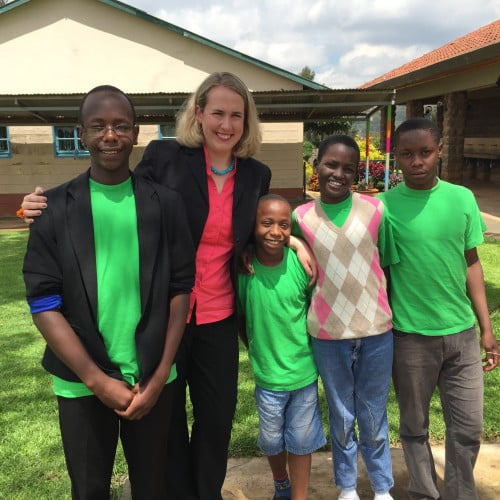
 In December 2012, I quit my job.
In December 2012, I quit my job.
I didn't have another one to go to.
And though there were lots of extenuating circumstances that led me to believe that I knew what would be next-- at heart I really didn't have a plan. It was very UNLIKE me.
All I knew was that Kevin could not do his work at Feed the Children all over the world around the world while I remained in a full-time pastorate in Virginia. Something had to give. And it was my job.
I told friends and family that I quit because I wanted to finish my book manuscript (which I did, but have shelved for the proper time to bring it out again).
But at a deeper level I quit for other reasons.
Traditional, scheduled and go to into the office every day kind of ministry wasn't fulfilling my soul.
And even if this meant I didn't buy new clothes for a long time or buy a new car for a couple of years, I could not go another day in the same old routine.
I know I made the right choice, looking back now.
But, the next steps weren't easy. The voices around me (or least the ones I heard the loudest) didn't help either.
People said: "Oh, you must be a good housewife" (As if suddenly I became Martha Stewart or something. Wrong!)
Or, "Aren't you so lucky you don't have to work?" (As if I didn't want to work. I did!)
Or, "You used to be a pastor?" (As if not having a specific location to pastor suddenly took my resume away. Not true!)
And looking back now, I have to say that leaving my acceptable job was one of the bravest things that I've ever done.
Why? Because I care what people think. I want to be normal.
Quitting my job, however, showed me who I was like no other experience could. John Lennon made famous the saying, "Life happens when you are busy making other plans." I was busy making other plans. And by quitting my job, life showed me another way to live.
Slowly I began to find my place at Feed the Children within the PR/ Communications department. I helped to start the first ever blog for the organization. I began doing freelance writing and social media projects for colleagues. More and more friends asked me to preach in their congregations.
What I was doing felt more aligned with my being than it ever had before.
My life began to speak in a Parker Palmer sort of way saying:
Now, that I'm pastoring in a more structured (and more recognized) setting again, I've noticed how colleagues' responses to me have changed. One even said, "Welcome back to pastoral ministry." But the thing is I never left!
But in these months, I'm doing it differently.
I'm remembering more who I am and who I am not.
I'm saying yes more often to short-term projects that I know I have energy to complete.
I'm believing that I am a pastor-- no matter if a church puts my name on the sign or not.
I'm thinking that interim work is more my speed as far as church life goes.
Ready to make a big life transition and afraid? Take courage from my story. You can do it too!
 As I'm getting back in the swing of the more structured pastoral life again, I am beginning to engage in conversations with folks that sound a lot like this:
As I'm getting back in the swing of the more structured pastoral life again, I am beginning to engage in conversations with folks that sound a lot like this:
"How do I know God's will for my life?" or "How can I know what God wants me to do?"
When I get asked questions like this, I usually feel inadequate (not because I didn't go to seminary or take lots of pastoral care classes) but because it is as if the questioner is asking me to play the role of God in their life, telling them what they are to do as they face difficult decisions.
At heart, I see the role of a pastor to be that like a spiritual director, an intentional relationship between a people and one called out to lead of figuring out what it means to find the presence of God in community. And so, as a pastor I still serve in the role of learner as much as I do a teacher. Thus, for me to give a specific answer to "This is what God wants from you" with complete authority can often be off base and misstated. One of my favorite prayers from Thomas Merton speaks of the fact that as much as we think we are doing God's will, we may not be.
So, if even pastor types can not speak definitively for God with absolute certainty, then how can we know? How can we discern God's steps for us when we reach junctures of big decisions?
I would have once answered this question by saying large amounts of time need to be offered up to God sitting quietly in the woods or taking residence in prayer closets. I would have said that if you diligently search the scriptures, an answer from the pages would come. Or, I would have said that if the decision leads to more folks coming to know of Christ, then of course it was the right one (can you tell I used to be an evangelical?).
But, as I've grown in faith, I've come to see a way of discernment that doesn't always have to include words shouted from the heavens with my name in them or having moments of great epiphany in prayer. It's actually much more messy than this. Sometimes as much as we think we know, we don't. My spiritual director always says meaning is revealed (to which I find frustrating of course).
So from my own experience (which again is just my own experience) this is what I know:
Sometimes, actually often times, discernment for me now looks like the simple practice of putting one step in front of another and seeing what comes. Knowing that as I go down a path, the Spirit can be trusted to show me where I am to be and where red flags are shouting "stay away, go the other direction."
Sometimes discernment comes in a word of a friend that I can't seem to get out of my mind.
Sometimes discernment comes as intuition that I believe from my heart that can't be shaken, no matter what occurs.
Sometimes discernment comes as pieces of a life direction falling together in ways that I know I could never dream up or orchestrate on my own even if I tried.
Though I am often not much help to those who come to me seeking "the answer" to their troubles, hopefully what I can do as a pastor, as a friend, as a wife is to listen, to say what I hear and hope for the Spirit to make clear what needs to rise up and what needs to fall away.
Because after all, this is what doing life together is at its best. For as much as I can be this for fellow travelers on the journey, I need the same folks to do this for me too.
Discernment then looks like me walking alongside you, you walking alongside me with open eyes, attentive feet and ears to hear "This is the way, walk in it."

The expectations. The crowds. The desire of the people to hear something new and meaningful.
Though I had a mentor once tell me don't sweat it, just tell the story. The problem is that everyone already knows the story: Christ is risen. Christ is risen indeed. The women came to the tomb. They were afraid. They go tell the male disciples. They don't believe them. Yet, everything changes for the world on this Sunday morning. Death has been beat. New life is possible. Jesus is alive!
The last time I preached Easter in 2012, I was over the Easter hoopla. I found myself fixated on the idea that resurrection is much more complicated than super happy hymns and families coming together in a church pew. Resurrection is hard work, I said. I ended by encouraging the congregation to not choose a resurrection path unless they were ready for their lives to be turned upside down. Because we need to remember what got Jesus to Easter morning: death!
On the way home this particular Sunday, Kevin told me that my sermon was a real downer. He wanted to know: "Where was the lighthearted mood from the pulpit?" But, I stood by what I said. Sermons are always about proclamations for a moment in time and that is where I was.
This week, I've been wondering if I were preaching Easter this year, what would it be about?
I'd land a bit more on the side of pro-Easter celebratory joy this year. Not because I am any less aware of how cruel and harsh the realities of life are. And most certainly not because I've come to believe that resurrection's moments in our lives are any less work.
Rather, I would preach in this way because life is so difficult. I have come to believe that life's problems make Easter's joy so important.
For we all need days in our year (and in our liturgical calendar at church) to remember what it looks and feels like when hope comes, when grace surprises us, and as the old hymn goes "when love's redeeming work is done."
If I were preaching Easter this year, I would do so with full voice and lots of exclamation points written into my sermon manuscript.
In many ways I would be forcing upon myself a joy that isn't all there, but I would do it anyway because to follow Jesus is to claim our status as Easter people.
I would preach that we have to cling to good when it comes.
I would preach that the greatest good that ever came to the world was Jesus.
I would preach that even when we are bearing our crosses, we serve a God who can make all things new.
Most of all I would preach that love never fails. It's what sustains us all our days-- the good and the bad alike.
I would ask the congregation to rejoice. For it is the day that the Lord has given us to especially rejoice.
But because I'm not preaching in a congregation this year, I leave my Easter musings with you.
Christ is risen. Christ is risen indeed! Let us be glad-- even if it is just for today. AMEN
Life.
It is always happening.
Sometimes it's great. Other times it is not.
 And today I am wondering about existing when things aren't well.
And today I am wondering about existing when things aren't well.
How do you go on when we are very aware that life’s broken edges cracked parts of you that might never be repaired?
How do you keep breathing when everything in you wants to lay down in surrender to what is lost?
How you have hope when life is never full of any guarantees?
Such are questions I’ve been thinking about a lot lately both for myself and those in whom I love that are experiencing suffering.
Getting out of bed. Putting on pants. Cooking at home. Making hopeful plans. Going to the gym. Calling a friend. Laughing when something is funny.
This is what not so well seasons of life are all about.
Making space for Grace to surprise.
Accepting conversation and loving embrace.
Appreciating the kindness, even small gestures.
Walking in the sunshine.
Bathing slowly.
Remembering the breath of life that is and has always been within.
When it is time to pray again, it will come.
When it is time to walk on a new path, it will be revealed.
When it is time to create, it will flow.
But when all is not well, it is good to accept it. It is good to surround yourself with people who don’t mind your crying. It is good to drink hot tea and pour a glass of wine later. It is good to wear fuzzy pajamas.
One day, Grace will help you move on. One day.
Until then, you know that there you are. Breathing in and breathing out.
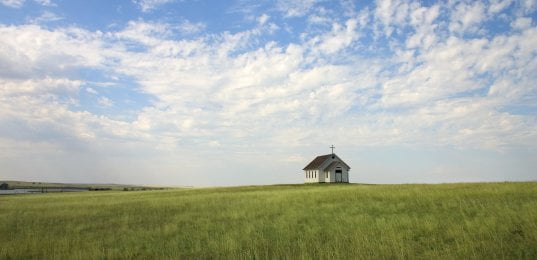 I was taught in seminary that the most virtuous thing you can do for your whole life is to serve the church with an undivided heart. "The church needs you!" my classmates and I were told over and over again.
I was taught in seminary that the most virtuous thing you can do for your whole life is to serve the church with an undivided heart. "The church needs you!" my classmates and I were told over and over again.
Sometimes our instructions included more details like this: “Take care of the church like nothing else matters. Live in the community where you serve, join every local board you can, and know your neighbors. Those who give their whole life to the church will not be disappointed."
And I tried. I really tried to become the best local church pastor I could be. I attended neighborhood meetings. I sat at the bed of the sick. I climbed into the pulpit week after week. And for a while it was my calling.
I wanted to fit into the one-size fits all church box forever. I wanted to come back to my 30-year Duke Divinity School reunion and tell stories about the pastoral life just like I'd heard out of my beloved professor, Dr. William Quick.
But after six years in full-time church ministry I found that I could not-- even as much as my heart really wanted to. My time was up.
Walking away from what I once felt was my dream job (as a solo pastor in the Baptist tradition) last Christmas became one of the hardest decisions I ever had to make.
I heard recently that when newcomers ask the church I formerly pastored why I left they say that "She become a writer." While I’m flattered with being identified as a writer (and I love writing), this is not quite it.
Furthermore, the change had nothing to do with the lack of joy in little congregation as they were great people. Nor was it all about my husband’s job in another state. Or even about the grant I received from the Louisville Institute to write a book, though these reasons seemed like legitimate ones on the surface.
No, I left local church ministry last year because I was finally ready to say yes to a calling. I was ready to be a nobody (if that is what folks thought of me) in order to be the somebody that I really am.
Right now, I am following that calling (though the "what do you do?" questions at parties now are harder to answer).
In the world from which I came both as a child of a pastor and also of a local church pastor making seminary-- to leave the church for something else felt to me like treason.
But in the past several years, I come to believe that being a whole person is much more important than a respectable career even if you have to feel like an outcast upon leaving. I took some cues from Barbara Brown Taylor here.
And for me to be a whole person, this is what I know:
I am not made for a job or type of job that lasts me my entire career.
I am not made to immerse myself into a particular local church community for a long time.
I am not made to just do one thing all the time or even just one thing at once.
I am not made for denominational life or ministry that values institution building over freedom of the Spirit.
Yet, with all of this said, I am made however for bolts of energy into new projects that need a leader.
I am made for community building with the global church.
I am made to multi-task my way through a variety of vocational pursuits that often on the surface seem like they have nothing to do with each other, but actually do!
I am made to speak the truth about systems that are broken.
And in all of this, I still feel ordained. I've not stopped being Rev. Hagan. I still feel like I’m in ministry.
I’m a writer sometimes.
I find myself in pastoral care conversation sometimes.
I’m a preacher sometimes.
I’m a strategist for creating community both in person and online sometimes.
I’m an administrator sometimes.
I do the laundry all the time. And I make dinner most of the time.
I'm thankful for the chance to do all of this "outside the church" but never too far from its larger mission.
And it fits. It really fits. The restless whispers of my heart have stopped yelling at me. I'm finally at home.
I feel settled even as pace of our current travels and activities make my family’s head spin when I inform them what I'm up to.
In this non-traditional life, I am happy. Truly I am.
I love supporting the communications department of Feed The Children. I love writing in a variety of different venues. I love having quality time for friends. I love traveling alongside my husband. I love preaching in settings (like next week in Hawaii!) that a local church schedule would normally not allow. I love that I have the freedom to find God both in and outside the church walls on Sunday morning-- depending on the week.
Lesson learned: when the whispers come, listen. I’m so glad I did. I hope I have the courage listen sooner next time. It’s ok to be different. Actually it is really wonderful even if some of my friends in the church don't understand.
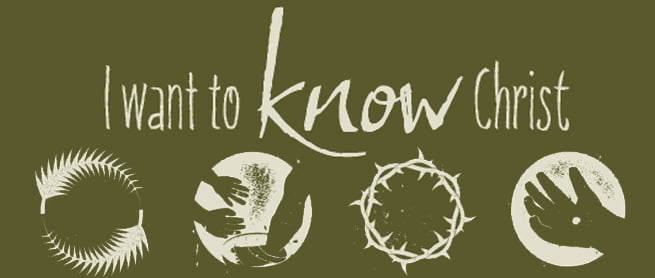 I Want to Know Christ
I Want to Know Christ
Philippians 3:7-11
Preached: August 11, 2013, Martin Luther King Christian Church, Reston, VA
I always knew when I was younger that one day I’d want to be married. I would want to have a life partner—someone in whom I could share in all of life’s most memorable moments with and one day grow old beside.
By my teenaged years, I had expectations on how this might happen—mostly coming from the stories I’d heard from how my parents met.
From the time that I was small, when my sister and I would ask my mom about how she met my dad, she’d tell us about the day that she stood in registration line on her first day at Belmont University in Nashville, TN. As she waited her turn to sign up for her classes, her last name was Duncan and my father to-be was Evans, so naturally they found themselves in the same line—the D-E’s. And there they struck up a conversation and the beginnings of a friendship that led to a marriage began.
So, I too thought if I wanted to get married, all I’d have to do was go to college. And there on the first week would I meet the man who would make me his Mrs.
I’d arrive at college and bam! I’d walk on campus and say “Hello fine young men!” And, he’d be there.
Well— you can imagine how great this “bright” plan of mine worked out!
I was shy at the time and really didn’t like going out of my comfort zone of who invited me to tag along with them. I saturated myself in an all-girlfriend kind of community—eating, studying and going to the movies with girlfriends, not boys. I guess it kept me out of trouble, but that was about it.
Even still, I thought without any work, effort or sacrifice Mr. Right would make himself known to me: the man I most wanted to know and marry one day. In my head, I imagined he’d just knock on my door one day, introduce himself, we’d date and then we could just get on with our really happy lives.
Yes, I said I wanted to be in a relationship. But, no, I didn’t try to get to know any new young men.
Well—you know how that went. I didn’t really date anyone for the next four years.
When many of us think of our relationship with Christ, we approach it in a similar way that I did with dating in college. We say that we want to grow.
We say that we want to have a relationship with Christ that is vibrant.
But, we get stuck.
We get stuck in a version of faith that closely models what we were taught in children’s Sunday School back in 2nd grade children’s church.
We get stuck on the faith we observed in our grandparents but never truly made our own.
We get stuck when the most difficult life situations find us—throwing in all our cards and say, “Well, there must not really be a God. Because if there was a God this bad situation would not be happening to me!”
We get stuck even though most all of us understand this basic truth:
To be a Christian is to what? Follow Christ.
But we equate knowing Christ with church membership—showing up regularly on Sundays.
We equate knowing Christ with having hope of eternal life—resting on the fact that we know where we’ll go one day when we die.
We equate knowing Christ with doing unto others as we would have it done unto us—being a good person because that is how Jesus showed us to live when he was on earth.
And, while all of this is well and good and there’s noting wrong with any of these things, faith of that depends only on these sort of things becomes a sideline only type of faith. Yes, we say with our lips that we are a Christian but there’s no movement in our lives toward the direction of who Jesus actually was.
We say we are following Jesus but our life looks nothing like His did.
The apostle Paul has a few words to share with us about this found in his letter to the Philippian church. It’s a book of Paul clearly laying his feelings about how much this congregation meant to him and what he wanted Christ to be in his life.
It’s a book that Paul wrote from jail—during what was most likely the end of his life, a time when we was saying the things that he most wanted to say.
In fact, scholars feel that the book of Philippians is in fact that the book the one they are most sure that Paul wrote by hand. Put simply, Philippians is Paul’s heart put to paper.
And within this context we hear the Apostle Paul say, “But whatever was to my profit, I now consider loss for the sake of Christ.” And then he goes on to say in verse 10: “I want to know Christ and the power of his resurrection and the fellowship of sharing in his suffering, becoming like him in his death.”
These are familiar words. If we’ve been around church awhile, we’ve heard them a lot. We may just gloss over them with our ears thinking we understand already what they mean. Following Jesus is about death and resurrection . . . Ok, preacher, I’ve got that.
But pause with me for a moment.
Paul is elevating the supremacy of Christ by saying “whatever was to his profit (as we know from his life story that he used to be a very righteous law-abiding Jew), he now considers loss for the sake of Christ.”
But not only this, Paul says that he wants to know Christ in two particular ways.
The first is that he wants to know the power of Christ’s resurrection. And the second, is that Paul wants the fellowship of sharing in his suffering.
(Have congregation REPEAT).
Do you hear what we just said?
Paul says to know Christ is not what most of us think knowing Christ is about.
I heard nothing about joining a church. I heard nothing about having correct theology. I heard nothing about reading the Bible and praying so many hours a week. Or any sort of easy or straight forward task that any of us could just snap our fingers and achieve.
Paul says, “I want to know the power of Christ’s resurrection” and “ I want the fellowship of sharing in Christ’s sufferings.”
I’ve been struck by the simplicity and the profound nature of these two qualifiers over the past couple of weeks.
Paul tells us it is only about two things: resurrection and suffering. But, these aren’t small things . . .
Let’s start with resurrection. Resurrection is the word that most of us associate with the Easter season, isn’t it?
On Easter Sunday morning we sing, “Christ the Lord is Risen Today” and “Up from the Grave He Arose” and we talk about how almost and amazing it is that Christ defeated the powers of sin and death and so we too can live forever more. It’s a happy day isn’t it? Full of bright flower dresses and new hats and lots of joy . . .
So following Jesus about resurrection—that might sound easy enough, right? We just have to show up in our Sunday best! Huh? Wrong!
Do we not remember all the stories that followed that bright Easter morning?
The stories of the men afraid in their scandals hiding in the upper room not believing the news that the women brought them about the empty tomb.
The stories of women like Mary finding Jesus in the garden outside the tomb holding so tightly on to Jesus that Jesus had to reprimand her saying: “Don’t cling to me.”
The stories of the disciples like Peter, filled with shame and grief having to have a conversation over and over again with Jesus about what he needed to do going forward at the seashore.
Resurrection is not about instant beauty or perfect circumstances. Resurrection is a process. Resurrection is a slow transformative process.
And while yes, resurrection is about new life and hope; its birth is not an easy process. Resurrection rattles of the foundations of what is normal, what is comfortable and most certainly what we might have expected before it comes.
It’s the power that dismantles every other power in our life that controls us, keeps us in bondage, or has any pull at all over our lives.
To want to know Christ and the power of his resurrection is much like a story that author Annie Dillard tells.
When speaking of the resurrection power of our Lord, she gives this advice:
“It is madness [for} ladies’ [to wear] straw hats and velvet hats to church; we should all be wearing crash helmets. [Instead of passing out bulletins,] Ushers should issue life preservers and signal flares; they should lash us to our pews.”
To say that you want to know Christ is to be ready for resurrection power to shake your life upside down.
And in the same way, Paul also says that he wants to share in the fellowship of his Christ’s sufferings. To know Christ is to know Christ’s sufferings.
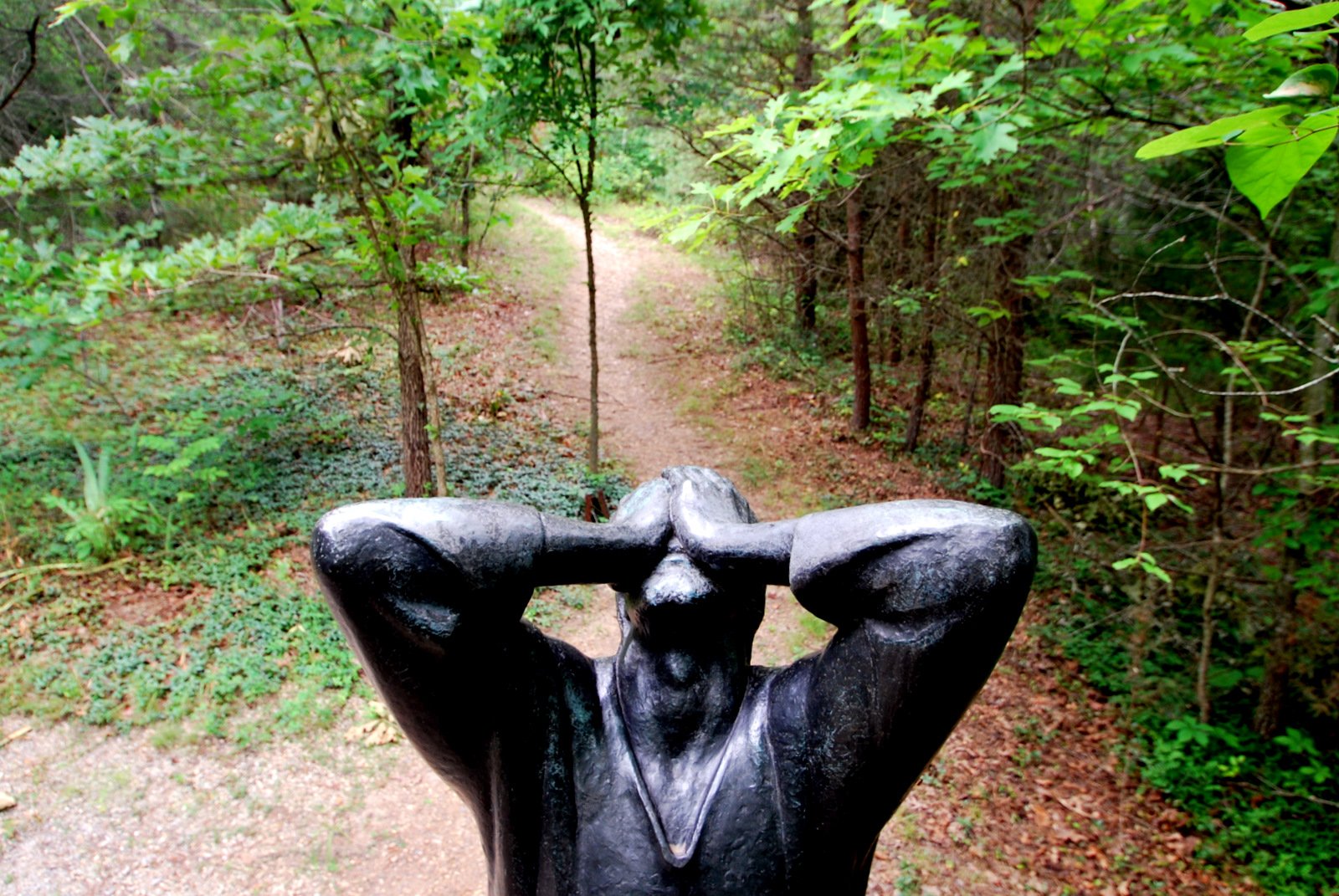 Sufferings . . . if you are like me, it’s never good when a sentence starts with this word is it? I hate suffering, what about you?
Sufferings . . . if you are like me, it’s never good when a sentence starts with this word is it? I hate suffering, what about you?
Suffering involves change not only in the way that resurrection is about change, but it is about pain and how pain changes us. Blood, sweat and tears as the saying goes. . . .
To know Christ, Paul says, we have to be ready to suffer.
To follow Christ is not to sign up for a ticket to life happiness (as some tv preachers—you know who they are might tell you) but it is to accept that in life, no matter how good we think we are, difficult situations are going to find us.
And in fact, the particular the MORE we begin to align our lives in the direction of Christ’s teachings, then the more we are going to get push back from the world.
It is as if Paul is saying, start following Christ and then get ready, because pain is going to come!
It’s going to be pain you or I didn’t ask for, didn’t make happen, or even is not the fault of our poor choices.
May I just take liberty to say that following Jesus sometimes means somebody is going to tell lies about us, somebody whom we love might leave us, or maybe even one day we are going to wake up and realize that our life has to take a completely different life path with some really hard choices.
And it’s going to hurt!
Even more so, people might just steal our clothes, spit on us, speak all kinds of ill against us, and our stands for Jesus might even cost us our very lives. If it happened to Jesus, then why do we think it won’t happen to us?
Suffering is just part of the commitment.
I ask you church, do you still want to know Christ?
I began my sermon with this morning telling you that as a child I dreamed of getting married one day.
Well when I was in seminary, God answer such a prayer and brought into my life an amazing life partner named Kevin Hagan who would be God’s instrument of love, challenge and encouragement to me for all that lied ahead.
And all was well and great and all—you know things were going fine. A year and a half ago, Kevin was working on the leadership team of a non-profit in Alexandria and I was happy over there at Washington Plaza—until Kevin got a call one day that would lead to another call and then a visit and then another visit where he would be named the President of Feed The Children that just so happened to be in Oklahoma.
And you can imagine as excited as I was for this opportunity for Kevin, how I felt about that—Oklahoma.
I told Kevin, “They don’t like my kind of outspoken female pastor-ness out there.” His optimist self said, “Give it a try.”
And now after I’ve been out there part-time for 6 months I can say indeed my assumptions were right. They don’t like my kind. And Oklahoma is a 22 hour drive away from here. It can feel very lonely. And there have been many tears in our household as much as there have been celebratory moments of all the new experiences.
We have to be careful what we pray for.
Sometimes God’s biggest blessings to us can also come with pain. Sometimes God’s biggest blessings can involve resurrection that forces our world-view upside down.
And it is a process.
Notice with me that Paul said, “I want to know Christ.”
NOT, “I know Christ” or “I know Christ already.”
Paul is exhorting us by example to A PROCESS of knowing the power of the resurrection and the fellowship of sharing in his sufferings.
Even for Paul it was never something he achieved or arrived at, it was about a relationship of wanting to know Christ more every day.
The last time I did a class preparing persons for baptism. I started the session by asking them if they were ready to die? “Have you lost your mind, Pastor?” their eyes said back to me in response.
And no, it wasn’t some sort of “hell fire and brimstone” are you sure you are saved sort of line of questioning. And no I had not lost my mind. I was serious. Were they ready to die?
Because as baptized believers who are desiring to know Christ, what we believe being immersed under the water and then coming back up symbolize the fact that we are dying to ourselves and being raised to a new kind of life.
The Christian life—at least as the Apostle Paul saw it was about death to our normal human experience. It was about the power of resurrection and sharing in the fellowship of Christ’s sufferings.
So I ask you church today, do you want to know Christ?
Do you want to walk in Jesus’ footsteps?
If you answer is yes, then I say, hold on for the ride of your life—for it will be a journey filled with the power of the resurrection AND the fellowship of sharing in Christ’s sufferings.
For those who commit afresh today to this way of dying to self and living for Christ, let the church say (AMEN).
 Some words of wisdom for the weekend taken from Mother Teresa. What are you doing today to enjoy life?
Some words of wisdom for the weekend taken from Mother Teresa. What are you doing today to enjoy life?
“Life is an opportunity, benefit from it.
Life is beauty, admire it.
Life is a dream, realize it.
Life is a challenge, meet it.
Life is a duty, complete it.
Life is a game, play it.
Life is a promise, fulfill it.
Life is sorrow, overcome it.
Life is a song, sing it.
Life is a struggle, accept it.
Life is a tragedy, confront it.
Life is an adventure, dare it.
Life is luck, make it.
Life is too precious, do not destroy it.
Life is life, fight for it.”
― Mother Teresa
How to Wreck Your Life Series
Live in the Past . . . Or in the Future
Luke 4:14-21 with Isaiah 43:16-21
Guest Preacher at Idylwood Presbyterian Church, Falls Church, VA
When your pastor, MaryAnn asked me several weeks ago to share this time of worship with you this morning, I was delighted for the opportunity knowing that it would be the first time I was asked to preach outside of the tenure I just completed as pastor at a Baptist church very similar to Idylwood just down the road in Reston. And, as she told me more about your winter worship series, “How to Wreck Your Life”—your focused time of study about the ways in which we all contribute to our own life failures, MaryAnn asked if I’d be interested in preaching along these lines, being a part of the series.
Of course, I said. I love series preaching and did such at my former congregation regularly. And was often on the other end of things asking guest preachers I invited into join in series I’d planned too. So, it seemed right that your pastor would ask the same of me (karma of course). And so our conversation together today on the topic of “Live in the Past . . . Or in the Future” began.
 At first I thought, I had it easy (Thanks, MaryAnn)—I knew exactly what the direction of this particular mistake would be in this sermon. It’s simple. We all have our heads too stuck in the past and need to move on to the future! God tells us God is doing a NEW thing.
At first I thought, I had it easy (Thanks, MaryAnn)—I knew exactly what the direction of this particular mistake would be in this sermon. It’s simple. We all have our heads too stuck in the past and need to move on to the future! God tells us God is doing a NEW thing.
But the more I pondered it, the more I realized “Live in the Past . . . or in the Future” was much more complex than it seemed at first look. Such a way we wreck our lives is not just about the error of looking behind too much—you know, the behavior of being stuck in a rut, unwilling to move on toward the new. But, it’s ALSO about being so consumed with the future that we deign our past exist. You’ve all heard the famous George Santayana quote, “Those go cannot remember the past are condemned to repeat it.” We’ve all had times in our lives when we just don’t want to deal with our past failures seeking to hit the fast forward button in our hearts as quickly as possible.
And, so I believe these two things are true: we have trouble with being stuck in the past. We have trouble being stuck in the future.
Therefore, I think today’s theme truly speaks to our human struggle of not being able to tune our brain to the present. We go and go and do at such a pace that we’re never really in the moment. In any given week, more often than not, our spirit gets lost in never-never land while our body keeps going through the rote motions on earth.
One of my favorite spiritual teachers is Anthony De Mello though he’s been deceased since 1987. De Mello, a Jesuit priest born in India, lectured all over the world about the importance of waking up to life and seeing it just as it truly is. His most famous text, Awareness: the Perils and Opportunities of Reality is a book I’ve recently picked up and read very slowly. It’s a rich text in which he writes, “The most difficult thing in the world is to listen, to see. We don’t want to see . . . We don’t want to look.” (28).
He goes on to talk about how our lack of awareness in the here and now costs us peace and contentment, but most of all blessings that we already have and just can’t see! We wreck our life by deigning ourselves engagement with relationships, joy and hope we currently have.
In the gospel lesson for this morning, taken from Luke 4, we find Jesus in a situation full of memories from the past and foreshadowing what was to come—but ultimately a situation that asked him to stay present in the moment, fully engaged.
And this is the story: Jesus visited his hometown synagogue in Nazareth after being away in the desert for 40 days of temptation. It probably felt good for him to be “home” back in his normal routine. Clues in the text such as the phrase “as was his custom” help us know that going to temple was a commonplace activity for Jesus; he was no high holy holiday kind of Jew.
And it just so happened that on this day it was his turn to read the scripture before those gathered, just like Debbie did for us a few moments ago. And as the scroll was handed to him he read the words from the prophet Isaiah that scholars believe are a combination of two particular passages: “The Spirit of the Lord is upon me, because he has anointed me to bring good news to the poor . . . to proclaim the year of the Lord’s favor.”
These were powerful words of promise of course—words that the listeners in the congregation most certainly would have thought were a part of a Messianic prophecy—a divine deliverance of the nation of Israel, a year of jubilee, a righteous mission given by God for the people to carry out together with the chosen one.
And after Jesus finished, he could have sat down and gone about his business of thinking about what he was going to have for lunch later on (which I know none of you are thinking about as I speak right now).
Jesus could have thought about all the times he’d heard this particular lection read as a child—what he’d heard taught by former teachers on the Isaiah prophecy.
Jesus most certainly could have sat down patted his dad on the leg, looked over at his mom, been thinking about what kind of wine was going to be served at the next Sabbath meal at his place.
Most of all, Jesus could have easily allowed this to be just one more day in the life. He could have easily and speedily moved on to naming this as a lovely to above average day of spending time at home again with family and friends.
Or, he could be present. He could be aware. He could live into this moment, the practice of seeing and hearing. He could abide in this unique opportunity to live into mission for his life.
We’re on the edge of our seat with Jesus here about what will come next. We know how it feels. It takes courage to listen to that voice deep within that says, “This is my way, walk in it” that we as Christians name as the Holy Spirit. It takes a lot of bravery to abandon the could-a, should-a and woulds-a’s in our head when we get that nudge to live with freedom. It takes guts we know to live in this boldness.
We see Jesus modeling for us this brave new way as he speaks when all of the eyes of the synagogue were on him. In verse 21 he stands up (and I can just hear a gasp going through the crowd) and says this bold confession of faith, “Today this scripture has been fulfilled in your hearing.”
Or in other words, “I am this Messiah. This is my mission. God has sent me to proclaim the good news.”
Whoa! For these would be the words that would ruin this perfectly tame Sabbath day, that would sent a riot through the crowd, that would run Jesus out of town (almost killing him in the process), and would forever shape the intensity of what Jesus’ future would look like.
I guess you could say by some standards of what it means to “wreck one’s life,” Jesus certainly messed up big time here!
No longer uncover as just Joseph’s boy.
No longer able to come back home without fear and hang out with his brothers and sisters like everything was alright.
No longer able to fly below the radar as if that “You are my son in whom I’m well pleased” event at the Jordan River baptism was somehow a fluke.
And most of all no longer able to deign that this ministry he was undertaking with bold confessions like this would one day get him killed one day sooner than later.
But, Jesus, you see, in awareness knew he needed to speak. He needed to teach. He needed to provide discernment to a group of people lost in the messes of their own making. He needed to be that voice that brought God’s hope to a weary worn crowd. In these 9 words, Jesus gives an inaugural address like none other. “Today this scripture has been fulfilled in your hearing.”
Jesus, I believe showed us how to not wreck our lives by living in the present. Something that staying in his head about the past or consumed with plotting the future could never do. He proclaimed good news.
This week, while preparing for this Sunday I read on your church website: “Idylwood Presbyterian Church is a welcoming Christian congregation. Thankful for God’s grace and enlivened by the Holy Spirit, we aspire to demonstrate the inclusive and expansive love of Jesus Christ to neighbors near and far.”
It’s a beautifully written statement about some of the best things that church life is all about—welcome, God’s grace and the life-giving gift of the Holy Spirit in our lives. And though your statement doesn’t use these specific words, I know that ultimately it is the gospel message of Jesus Christ that each of you as individuals and as a congregation are trying to live out together.
(Otherwise you wouldn’t be here this morning. There are of course there are thousand lovely thing that you could be doing with your time on a Sunday morning that don’t include getting out of your house in these frigid temperatures we’ve been living through all week . . . )
And, so if it is true that gospel is at the heart as to why you are here, and why you are seeking to live in community with one another, and why you are most of all seeking to frame your life’s values as about something most assuredly greater than yourself, then, I believe the word of God before us today, the word of being present in our life is something that we all need to consider more often.
 Again, it is here that De Mello asks us all some good questions, “You want to hope for something better than you have right now, don’t you? Why not concentrate on the now instead of hoping for better times in the future? Why not understand the now instead of hoping for better times in the future? . . . . Isn’t the future just another trap?” (35).
Again, it is here that De Mello asks us all some good questions, “You want to hope for something better than you have right now, don’t you? Why not concentrate on the now instead of hoping for better times in the future? Why not understand the now instead of hoping for better times in the future? . . . . Isn’t the future just another trap?” (35).
All of us so regularly self-sabotage our lives when we choose to live in moments of our life that either do not exist anymore or are yet to exist at all. The consequence is that we don’t really see those in our direct circle of influence. We don’t see how the gospel can be good news where smack dab where we are!
And this is what I most want you to know: we can so easily miss God as we ignore the opportunities that the day-to-day encounters of our lives offer us, especially when we feel the nudge of the Holy Spirit to slow down, see, act and simply be.
Times when we run into a homeless woman asking for money outside the door of CVS even though we only have $2 in our pocket . . . .
Times when our child snuggles up to us, really wanting to have a conversation about how the school day went even though we know there’s laundry to fold. . . .
Times when a co-worker invites us into a more personal than usual conversation at the lunch table even though we really need to rush off to a meeting . . . .
Times when our body says stop and enjoy Sabbath though the rest of our life says go as it may even though we don’t think we have time to pause. . . .
Times when we just know we can no longer be silent about a justice issue making the headlines when our family member asks our opinion even though we know we might not get invited back to Christmas next year. . . .
Moments, being present in moments are truly what living and being the gospel is all about.
The Old Testament lesson today is one of my favorite verses of scripture that has always prodded me to greater levels of awareness, Isaiah exhorts the people by saying: “See, I am doing a new thing! Now it springs up; do you not perceive it?”
God is at work in the world. God is at work in your life and in mine. Do we want our lives to go forth in ways of great worth in the kingdom of God? Do we want to see the new thing that God is springing forth today?
Then, our hope comes as we abide in God’s gift of now. Not in how our lives used to be. Not how we wished they were going to be one day. But our lives just as they are! For such is where vision is found, vision to truly see God. And, not wreck our lives, but find them abundantly blessed.
AMEN
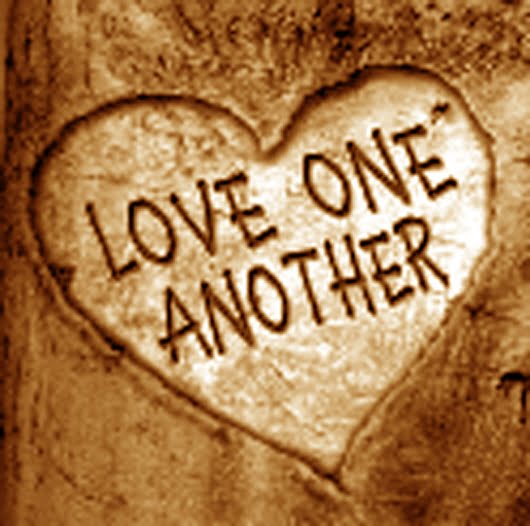 When is the last time you encountered a person of faith, in particular a Christian who was engaging in particular activities one might call "crazy?"
When is the last time you encountered a person of faith, in particular a Christian who was engaging in particular activities one might call "crazy?"
I know I've met my share of over the top loving kind of Christians through the years being in church as long as I have.
I've met Christians who follow Jesus to the degree in which they decide to sell their home and pack up their things and move across the world-- to third world nations sometimes even-- to share hope in medical supplies, food and friendship with some of the world's most discouraged and broken people. They do so saying, "God has called me to show Christ's love."
I've met Christians who follow Jesus to the degree in which they open up rooms in their home to internationals, struggling single mothers, or exhausted college students -- even when the person has no means to financially repay their kindness and nurture them back on their feet again. They do so citing, "God has called me to show Christ's love."
I've met Christians who follow Jesus to the degree that they'll spend hours of their free time making hospital visits to the terminally ill without family attending -- bringing a compassionate touch of support to those who would not otherwise have any. They do so citing, "God has called me to show Christ's love."
I've met Christians who follow Jesus to the degree that they ask their own young children to go without that desired toy at Christmas so that instead the money can be used to buy toys, clothes and other household items for families in their neighborhood who have recently lost everything in a destructive fire. They do so citing, "God has called me to me show Christ's love."
I've also met Christians who follow Jesus to the degree that they stop everything they are doing when they learn a member of their church has experienced a death in the family. Soon piles and piles of mac and cheese, broccoli chicken casserole, and hearty soups are delivered to the home of the grieving just in case they get hungry. They do so citing, "God has called me to show Christ' s love."
Christians can be crazy people can't that? Doing the behind the scenes work of compassionate deeds, sacrificial giving and life-giving hospitality that others in the world might find to be foolish, a waste of resources or for some, just plain dumb. But, truly Christian act-- or seek to act in love because of the life and witness of Jesus Christ.
I John 3 lays it out clearly for us here:
16 This is how we know what love is: Jesus Christ laid down his life for us. And we ought to lay down our lives for our brothers and sisters. 17 If anyone has material possessions and sees a brother or sister in need but has no pity on them, how can the love of God be in that person? 18 Dear children, let us not love with words or speech but with actions and in truth.
As followers of Christ, our hearts are full of compassion for others in the same way that we know God has been compassionate toward us.
So, while sure, Christians don't have a market on this whole "loving deeds" business (a tenant of people of all world religions), we certainly are people who can't avoid it. We can't say that loving each other is some humanistic talk without spiritual value to Jesus. We can't boil our faith down to a commitment we made years ago with no evidence of it in our daily life. Just as Christ loved us and taught us how to love, we are to love one another.
I'm proud to be a member and a pastor of a church that is about the "crazy" business of loving each other and any who would come in our doors. Just a couple of weeks ago a group of homeless teens came to worship and I was so proud of how everyone responded to them feel at home. Just yesterday, we all piled our resources together and hosted a lunch for a family who recently lost their loved ones. And countless other examples could be given. Loving other always our calling-- even when we don't agree theologically, even we don't always understand one another, even when we get on each other's nerves. We can still love. We can always love. And if they call us crazy for doing so, then this makes Jesus crazy too and we'd be in good company!
By Faith We Go On: Hebrews 12:1-2, 8-12
Martin Luther King, Jr. Christian Church 30th Anniversary Service & Joint Service with Washington Plaza Baptist Church
Now, I know that some in the congregation this morning, get to hear me talk more than they might like-- as I preach every Sunday-- but for the rest of you all gathered today, you probably don't know much about me other than the kind words that Pastor Jean shared with you earlier (thank you). So, there is something I really need to share with you about my past in order for you to get where I am coming from this morning.
As a child, on countless occasions, I desperately wanted to become my dog. Yes, my dog, named Trevor. Trevor, became a member of our family when I was in 4th grade so that my younger sister Emily would stop screaming bloody murder every time she was in a room with a dog. Though a moody and hyper pup, I loved Trevor from the start. And so, regularly, I asked my mom if he could ride along with us as she took me to school in the mornings.
One particular morning, fearing the worst day ever-- a spelling test I did not study enough for, meeting up with some potential bullies on the playground, and having to sit through an extra math class on long division-- I remember voicing to my mom just as I was about to get out of the car that I wished could become Trevor, if only for a day.
"Why?" she asked looking surprised at my request. "Why would you want to be Trevor?"
 "Well," I said, "Trevor has such a good life and he doesn't even know it. He eats. He sleeps. He plays outside and we love on him. Never does Trevor have to worry about fights with other dogs or teachers giving him bad grades or even what his friends will think of his lunch. I wish, Mom, that I could be Trevor right now! I wish; I wish!"
"Well," I said, "Trevor has such a good life and he doesn't even know it. He eats. He sleeps. He plays outside and we love on him. Never does Trevor have to worry about fights with other dogs or teachers giving him bad grades or even what his friends will think of his lunch. I wish, Mom, that I could be Trevor right now! I wish; I wish!"
Of course, you know how well my wish of transformation into a dog went over. I did not get to have a one day vocation of eating kibbles and bits and barking at cats. But while a silly wish, isn't it true that it would be a lot easier to be dog than a living, breathing, worrying, stressed out, commuting to work in traffic every day human being? (They don't call it a "dog's life" for nothing!)
So, I ask you: anyone come to church with any worries today? Anybody come to church with any heavy burdens? Anybody come to church today with cares weighing you down that you'd just like to disappear from right now and become your dog (or better yet your rich neighbor's dog) for the day?
Well, welcome to the human plight of the hard life we live in, most of the time.
Dr. Tony Campolo, champion of social justice and professor at Eastern College, PA, once shared a meditation on the difference between human beings and the rest of the members of our mammal family, saying: "Human beings, as any social scientist will tell you, are unique among all the creatures on the planet. We are the only ones who are capable of imagining the future; of looking ahead."[i]
In contrast to the carefree nature of a squirrel gathering acorns, or a horse eating hay, or a lion searching for dinner as their singular daily purpose-- we as human beings have the reasoning capacity to fear the future, plan, and to anticipate death. Unlike our furry friends, our days are easily--- just as we brought to mind a few minutes before-- filled with anxieties about what is not and what might be.
But, this is not the whole story, Dr. Campolo said. Because we do have the capacity to imagine the future and to be filled with forward directed reason-- we also have the capacity for faith. We have the ability, unlike any other creature, to see the world from a greater perspective and to join our lives into what God is already doing in the world.
Therefore, hear this: faith, as an emotion and a state of being IS a uniquely human gift. For even though we all know death (like taxes) is coming, we do not have to be trapped in fear of what we don't understand, what is not yet, and what might be generations from now. Faith helps us face our future-- even if we know not what it will be. In this hard, hard world with all its challenges and sufferings, it is faith that God has given each one of us as how to get through!
Furthermore, faith is what God gave you and you and you and me, so that we could be in relationship with the awesomeness that is the Creator of the universe. God's gift of faith is how we even have the chance of knowing the One who is the ultimate good.
In our Hebrews lesson for this morning, we hear a good sermon proclaimed to a discouraged people, a people who faced sufferings and a people who really wanted to give up on their spiritual lives. And in this sermon they are given words of hope. These hope filled words began with "by faith."
Look with me at verse one of Hebrews 11: "Now faith is the assurance of things hoped for, the conviction of things unseen."
By faith, we have the promise, of God's dwelling in what we simply cannot see or get our minds wrapped around with impossible odds of accomplishment. And, as we read on beginning at verse 8, this preacher reminds us of the story of Abraham-- a man who knew a thing or two about being asked to live in faith.
Notice with me some key points from the Hebrew preacher's retelling of Abraham's story.
 First, by faith, Abraham-- obeyed. When he knew that God had asked him to set his direction toward a particular task AND Abraham simply did what God wanted. Not what he wanted. And in obedience there was no whining. No complaining. No, "Well, God, maybe there could be another way"-- no, we read that Abraham obeyed.
First, by faith, Abraham-- obeyed. When he knew that God had asked him to set his direction toward a particular task AND Abraham simply did what God wanted. Not what he wanted. And in obedience there was no whining. No complaining. No, "Well, God, maybe there could be another way"-- no, we read that Abraham obeyed.
And, second, in this path of obedience, some unusual behavior was required-- to set out for a journey not knowing where he was going (stupidity by our modern standards of a GPS for everything, right?). But, on this unknown journey, Abraham had to be ready for whatever came, even if this meant going to a foreign land.
Not a land he knew anything about. Not a land that was comfortable for him. Not a land where he could drive by his old neighborhood every day and wave with a grin on his face of feeling secure. No, a land that was completely unknown-- with unknown people and unknown food and unknown smells and you name it: it was the unknown!
And, third, by faith, Abraham found himself without the security of permanence as he went on. Look with me in verse 9. Where does it say that Abraham lived? "in tents."
As much as Abraham hoped his journey with God would bring him fortune and wealth and a big plot of land to call his own with lots of little Abs running around-- God never gave him more than a home of a tent.
And more so, it wasn't even until the last act of his life, that God blessed him with a son, a miracle boy named Isaac. Isaac, a son that came by a promise that Abraham's descendants would be as many as the stars in the sky (but again made no logical sense). But, in all of this, by faith-- Abraham lived.
As I was reading over Martin Luther King, Jr. Christian Church's history this past week, I recognized quickly that this body of gathered believers, like Abraham knew a thing or two about the journey of "by faith."
For "by faith" in July of 1981 (I won't tell you how old I was on this day . . .), a small group of neighbors of parents of good citizens of this new community gathered and shared a crab dinner and began dreaming about being called a church together.
For "by faith" on January 15, 1982, a group of 12 committed Christ followers gathered in the home of Adelle and John Author Jones and selected a name for this new movement of the spirit and called it, Martin Luther King, Jr. Church.
For "by faith" on February 7, 1982 the group gathered again, this time at the Southgate community center to fellowship and celebrate their first worship experience together.
And, "by faith" the first interim minister, Rev. Dr. Joseph Dancy , Jr. was called to serve and lead this growing group of believers. And the word "Christian" was added to the church's name.
And, "by faith" later on Rev. Dr. Clinton D. McNair was called as pastor and lead the church alongside of you to begin to recognize that this new movement was not so new and so it needed a better "tent" to call home for the long run. "By faith" in 1987 2.3 acres of land was purchased through the sacrificial giving of so many of you at 11400 North Shore Drive in Reston.
And, the "by faith" story and it many twists and turns through the years could go on and on and I'm sure if I stopped my sermon right now and asked for testimonies, we'd be here until midnight recounting the good works, the impossible victories coming through and the lives in this community changed by the witness of this church. For, if there is anything I know about the story of Martin Luther King, Jr. Christian Church is story of "by faith."
You story has been one much like the Shel Sliverstein poem of not letting what others say about you determine you future when he wrote:
“Listen to the mustn'ts, child. Listen to the don'ts. Listen to the shouldn'ts, the impossibles, the won'ts. Listen to the never haves, then listen close to me... Anything can happen, child. Anything can be.”
You've, church, let God say to you throughout the years, "Anything can happen, child. Anything can be."
But is this enough? Should we pat ourselves on the backs and go home now?
As much as today is a celebration of the past, of the love of Christ that has been shared with the community through your hands and the hands that have gone before, today is also a crossroads of this "by faith" journey, for you, my Martin Luther King, Jr. Christian friends.
What will the title of the next chapter of your story be? In whom will you trust? And in whom will you follow? How will you choose as a church chose to move on?
And while there are countless perfect good ways that any of you could suggest for this fill in the blank statement: "We will move on by______" I suggest 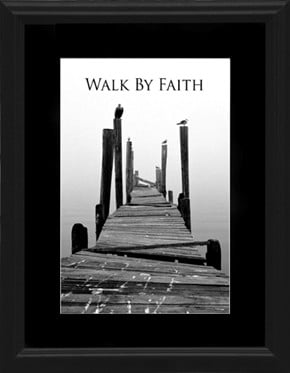 to you this morning, as one of your cheerleaders among many of us down the street there is only one way to move forward as a church and that is "by faith." Dr. King in fact once said: “Faith is taking the first step even when you can't see the whole staircase.”
to you this morning, as one of your cheerleaders among many of us down the street there is only one way to move forward as a church and that is "by faith." Dr. King in fact once said: “Faith is taking the first step even when you can't see the whole staircase.”
You know I told you that I read more about your history as a congregation before I prepared to preach today and I couldn't help as I read to pay close attention to the section of your history which highlights the tenure of my friend, Rev. Jean.
I have the utmost respect for your pastor and her leadership here. In fact, my Washington Plaza friends, it was she who gave me some of the best advice in the first couple months of my ministry in Reston when I was having one of those difficult days that come to any new pastor. She said to me, "It's going to get better. By God's help." And, "Yes, Rev. Jeanine, by God's help, we at Washington Plaza are having some good days together."
But, again, as I was reading, I noticed something unique about the focus of your current pastor, highlighted specifically about her time here and it was this sentence: "A focus area for Rev. Jean is the building of a diverse worship community that welcomes all races, creeds, and colors."
I dare say, we, the Washington Plaza Baptist community, would not be in these chairs today, if it wasn't for this faith conviction of your pastor. She's led you to claim the gospel, the whole gospel which means we've got to have people around us that don't look, think or even talk just like us to truly see the face of Christ.
And, in light of this, I can't help but think as I dream together today with you, my Martin Luther King, Jr. Christian friends that the next 30 years is going to look different from your first thirty years-- if you keep following by faith.
I might be wrong, but I can imagine that what you see today (look around the room right now) -- people of all races, creeds and colors worshipping the one God gathered here together-- is going to be a part of the what the future holds.
Sure, this congregation was founded on the need of doing church in a rich, worshipful tradition and passing down stories from one generation to another of a particular kind. But, 1982 is not 2012. And, what God needed from you, church in 1982 might not be what God needs from you faith believers of God in 2012 and beyond.
This is the reason why our movement must always be in faith. Because yes, while we know there is a future and we could very well be anxious about it (especially if we start comparing it to the past), we have a God who continually whispers in our ears the truth the Apostle Paul long ago taught us, "With God's power working in us, we can do more than we could ask for or imagine."
Because of this promise, I say dream church! Give church. I say grow church. Study church. I say give church. And in all of these things, live and move and have your being by faith.
After all, Dr. King once said: “If you can't fly then run, if you can't run then walk, if you can't walk then crawl, but whatever you do you have to keep moving forward.”
I'm excited to see where this by faith journey takes you and I even dare say takes us, as brothers and sisters in Christ, as friends, as partners in ministry together only blocks away from one another.
Can the church say Amen to our calling to "move on in faith?"
AMEN
[i] "Trusting in God in the Days that Lie Ahead" Program #4604 http://www.csec.org/csec/sermon/campolo_4604.htm